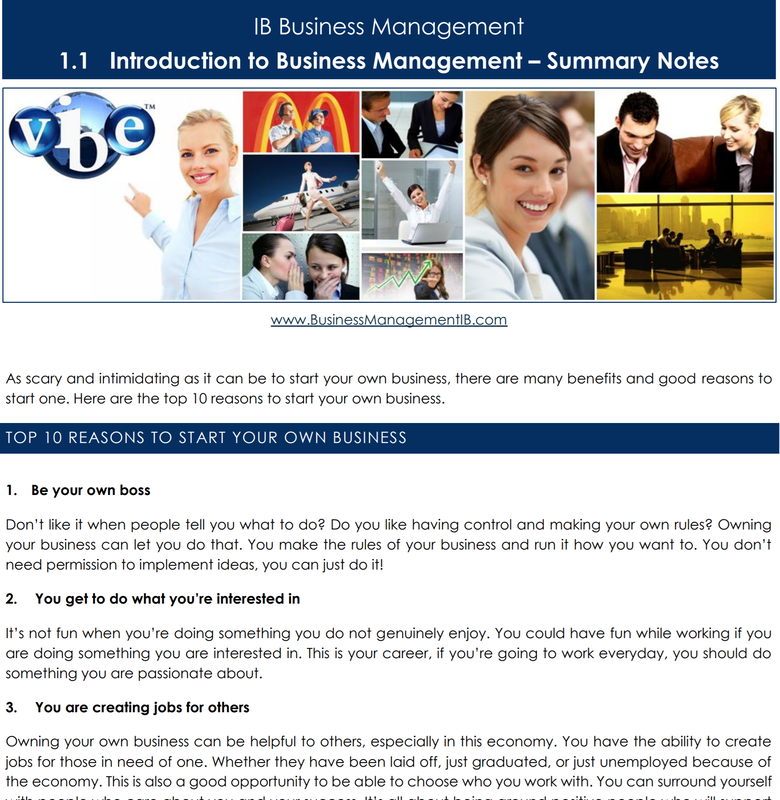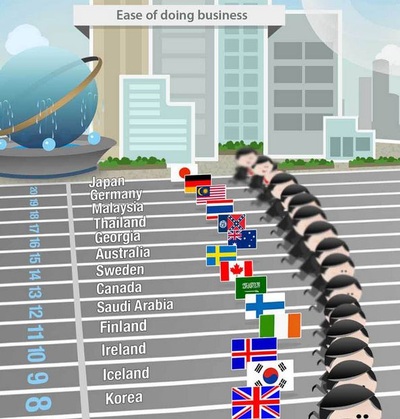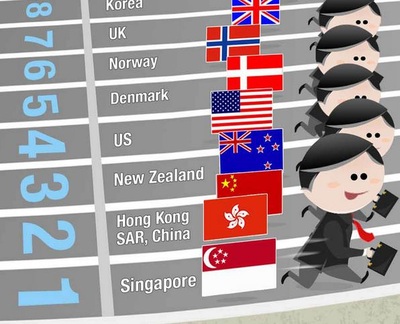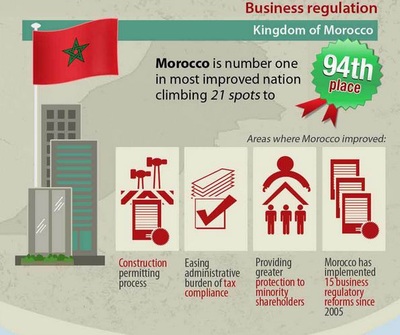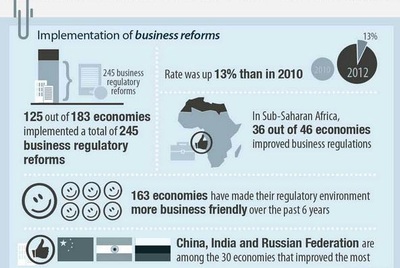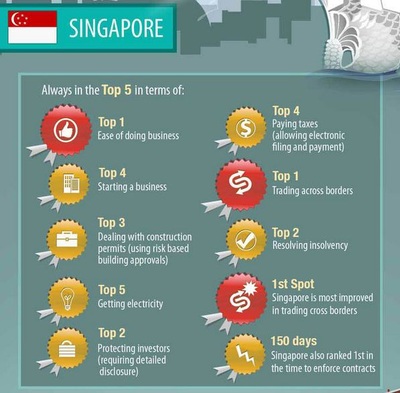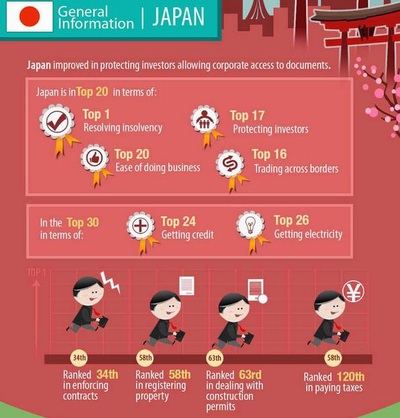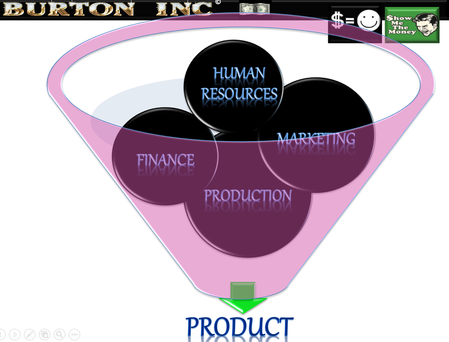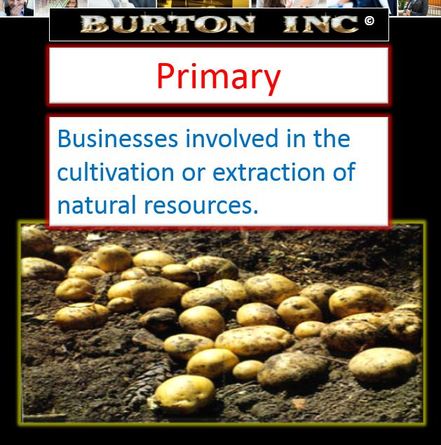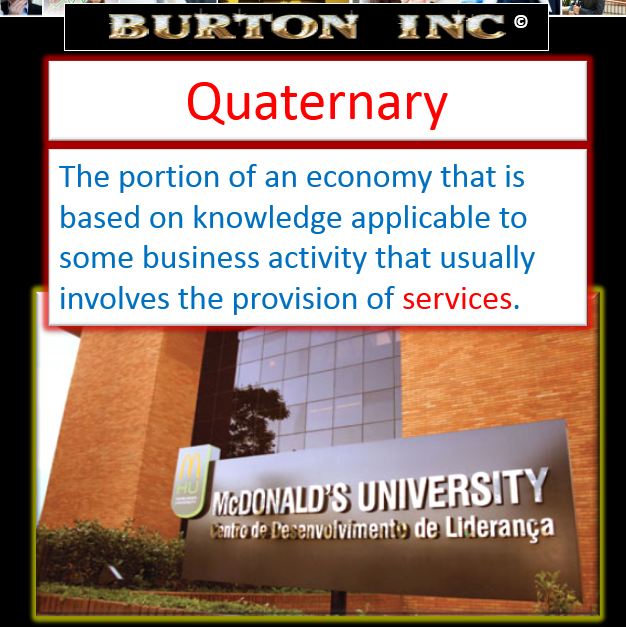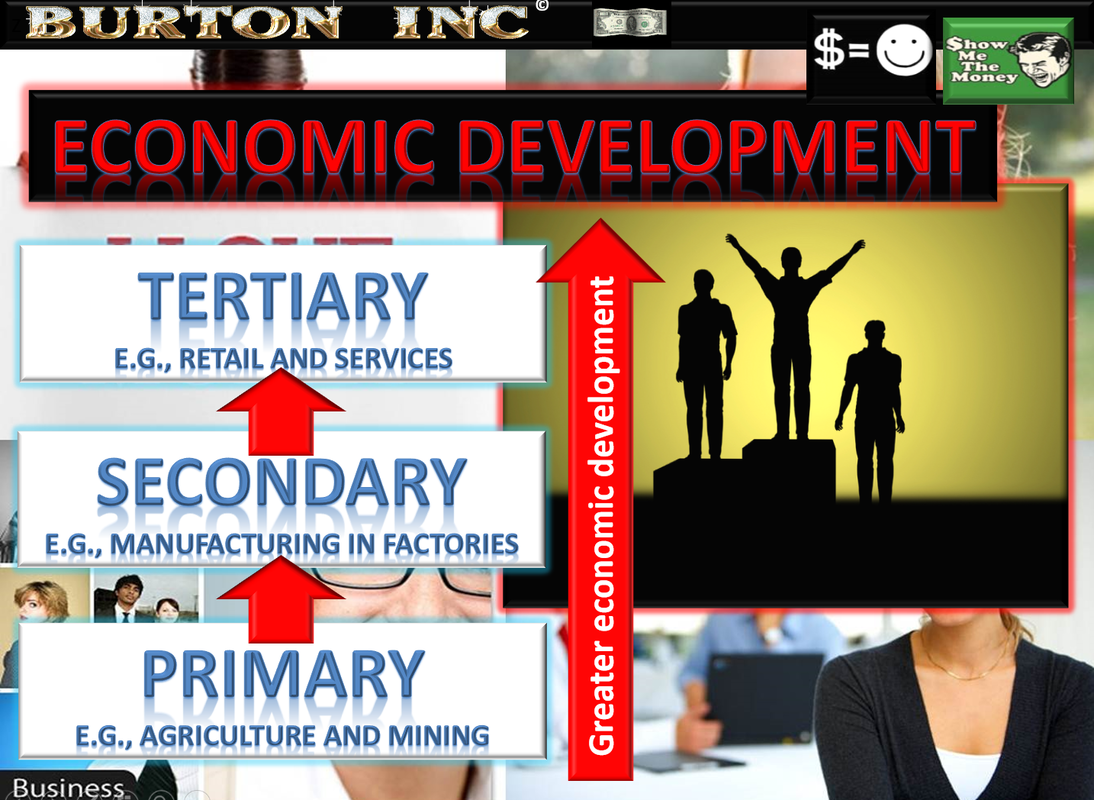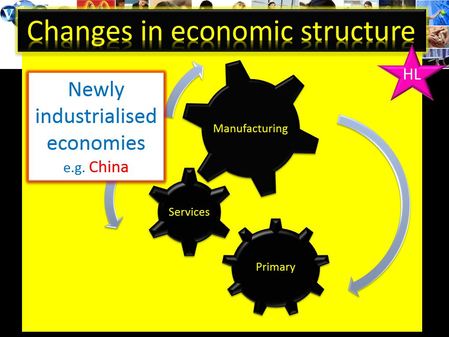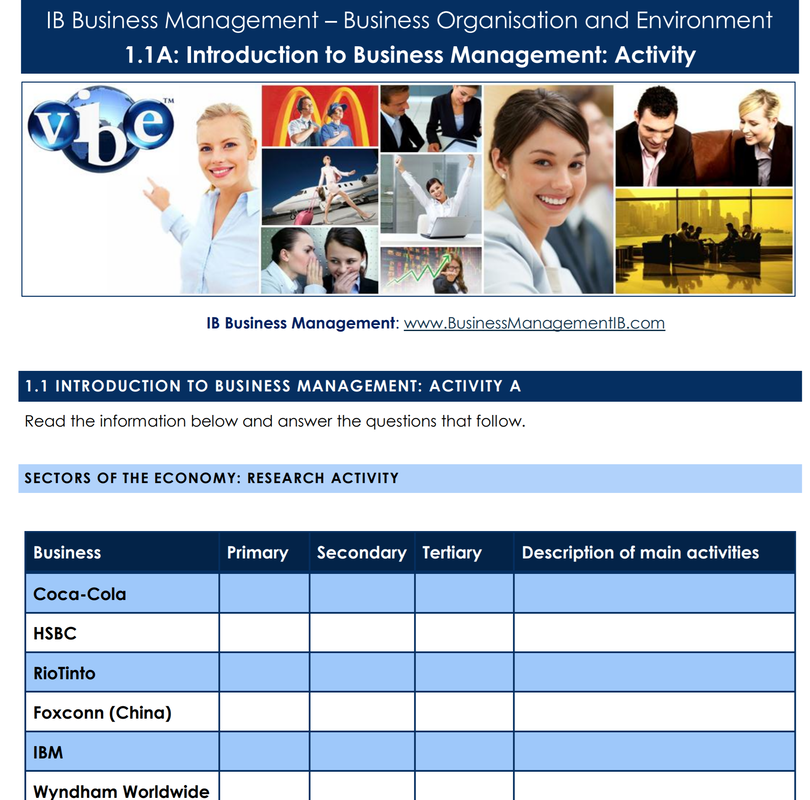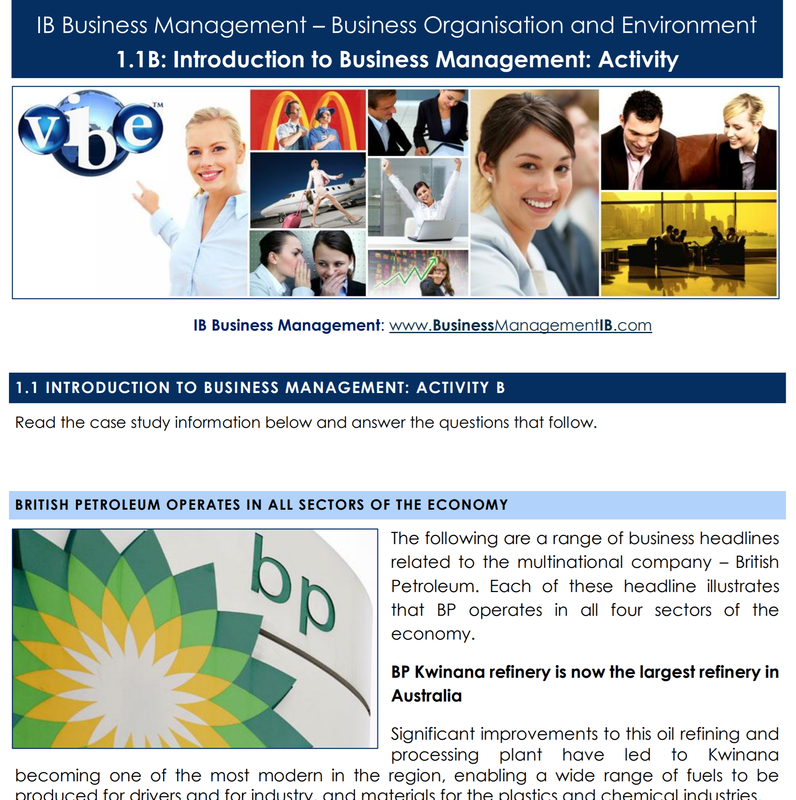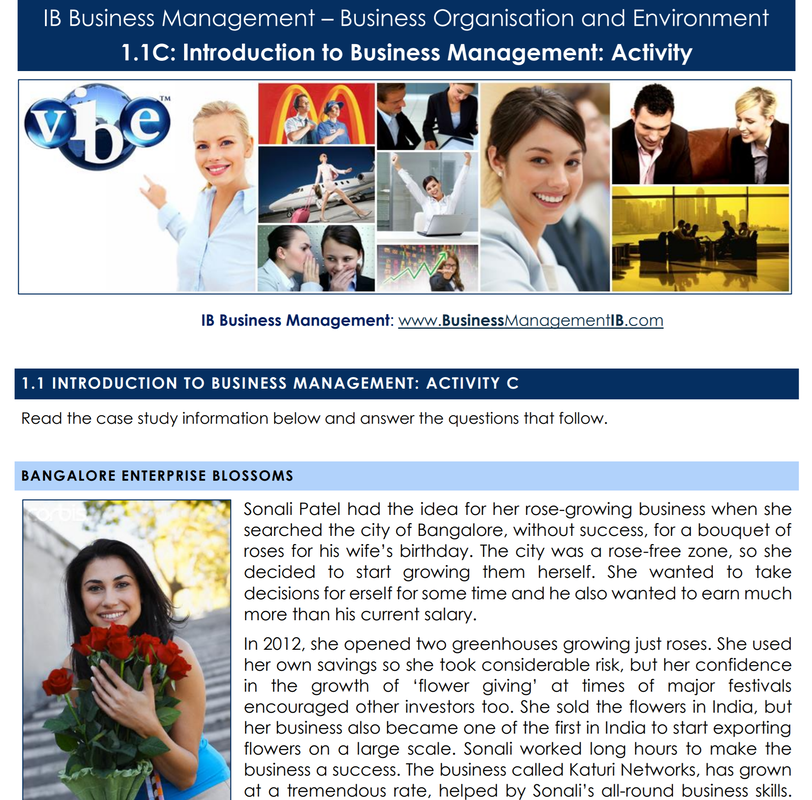IB BUsiness MAnagement:
|
|
Key Learning Outcomes
|
What is a business?A business is any organisation that uses resources to meet the needs of customers by providing a product or service that they demand.
Not for profit organisations are classified as businesses. |
What do businesses do?Businesses identify the needs of consumers or other firms. They then purchase resources, which are the inputs of the business or factors of production, in order to produce output. The 'outputs' of a business are the goods and services that satisfy consumers' needs, usually with the aim of making a profit.
|
teach everyone to start businesses |
Everyone can now be an entrepreneur |
Starting a business: Role of the entrepreneurAn entrepreneur is someone who takes the financial risk (and reaps the rewards!) of starting and managing a new venture. These people have:
Qualities of the Entrepreneur:
Why start a business? Reasons for starting a business may include:
Problems faced by Start-UpsEven if an entrepreneur has all of the right qualities, success with a new business can never be guaranteed. Many businesses fail during the first year of operation, because of:
|
Adventures of the Mini Entrepreneur - A cute animated series about a budding entrepreneur |
Starting your own business: summary notesSummary notes on the reasons for starting up a business, common steps in the process of business start up, and the problems associated with starting anew business (including reasons why most new business won't last 18 months).
|
Best countries to be in businessA fantastic interactive map of the best and worst countries to do business in can be found here.
|
The Business PlanThe business plan is a written document that describes a business, its objectives and its strategies, the market it is in and its financial forecasts
The contents of a typical business plan include:
The main advantage of preparing a business plan is that it allows you to fully investigate your own business idea and clarify your thoughts and ideas. It will also enable others to examine your idea and provide you with feedback. Investors will probably only look at the Executive Summary.
|
Do you need a business plan? |
Capital GoodsGoods used in the production of other goods and services.
|
Opportunity CostOne of the most important business concepts to understand.
|
Sectors of Industry
All production can be classified into three broad types of business activity, or sectors of industry: primary, secondary and tertiary sectors - the quarternary sector is a specialised area of services based on providing knowledge services.
Sectors and Changes in SectorsAn informative video of the different industrial sectors and how they have changed over time. The focus is primarily the UK. Over time the primary sector of the economy shrinks as a relative proportion of total economic activity and the tertiary sector increases.
|
Not-for-profit organisationsIf an organisation is taking resource inputs (e.g. labour and capital) and then turning it into outputs (e.g. feeding the hungry) they are, by definition, a business. A charity will use the time of volunteers and paid help and use the charitable donations to produce services which fulfill the objectives of the organisation.
|
Economic developmentProduction and employment tends to shift from primary through to secondary through to tertiary the more developed an economy becomes.
Developing economies (e.g. South Sudan) will have most businesses operating in primary industries such as farming and mining.
|
As economic development progresses, more businesses will shift into manufacturing. Newly industrialised economies (e.g. Vietnam) will having a manufacturing sector that is growing proportionally larger as a total share of economic activity.
Developed economies (e.g. the UK) will be primarily service sector focused. The majority of businesses and people employed by businesses will be operating in the service industries, including the quarternary sector.
|
1.1 Intro to Business management:
Summary PowerPoint notes I
1.1 INTRO TO BUSINESS MANAGEMENT:
SUMMARY POWERPOINT NOTES II
INTRO TO BUSINESS MANAGEMENT:
|
INTRO TO BUSINESS MANAGEMENT:
|
Progress check - test your understanding by completing the activities below
You have below, a range of practice activities, flash cards, exam practice questions and an online interactive self test to ensure you have complete mastery of the IB Business Management requirements for the Business Organisation and Environment 1.1: Introduction to Business Management topic.
Keep yourself up-to-date with the latest business news |
During your IB Business Management course it is a good idea to keep yourself up-to-date with business news. This will help you to apply the work you have done in class to the world outside.
Business News: Our business news section has an RSS feed for articles, videos and podcasts that keeps the important business news current and easily accessible.
|
IB BUSINESS MANAGEMENT QUIZZES AND TWO CLASSROOM GAMES
Test how well you know the IB Business Management Business Organisation and Environment - 1.1 Introduction to Business Management topic with the self-assessment tool. Aim for a score of at least 80 per cent.





